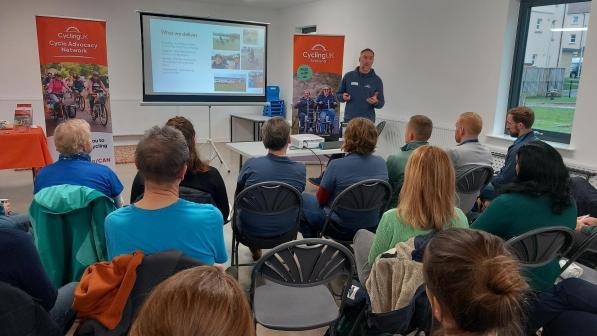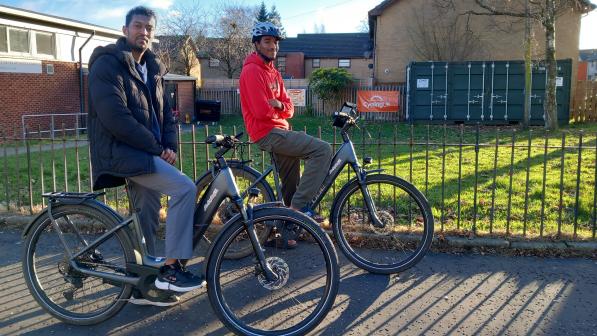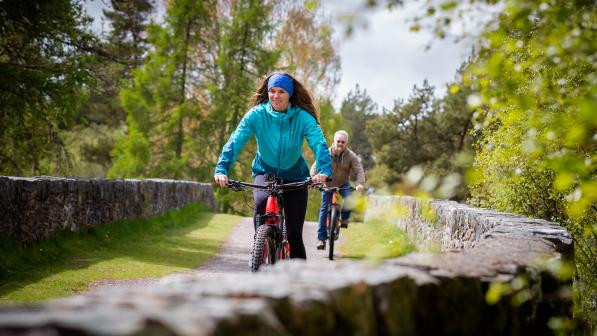From first wobble to weekly rides: Glenda’s story

Glenda hadn’t ridden for years. She arrived at our Connecting Communities session in Shawfair, feeling that familiar knot of doubt – can I actually do this? – and almost turned back. What helped her stay was the tone of the session: friendly, local, no jargon.
That’s the spirit of Connecting Communities: locally embedded support that helps people across Scotland walk, wheel and cycle for everyday journeys, leisure and adventure.
Alongside welcoming activities, we offer short- and long-term cycle loans and work with community organisations so active travel becomes a practical option close to home.
Kirsty, the instructor, started with a chat rather than a checklist. What did Glenda want? Confidence, mostly. Space to breathe. And a hope that if riding felt safe and normal for her, her autistic son – who doesn’t always enjoy going outside – might try it too.
They began simply: a quiet loop near the park, practising steady starts and smooth stops. Next time they ventured a touch further, checking sightlines, signalling and reading the road without apology.
If Glenda asked: “Could we ride to…?”, Kirsty would check the route, then they’d try it together. No drama – just steady progress.
There was a moment when the bike wobbled and the old doubt returned. Then Glenda’s shoulders dropped, the pedals turned and something clicked.
The world didn’t rush past – it opened up. Over four weeks, small wins stacked up: looking over her shoulder without drifting, taking the lane when she needed it, feeling at home on a bike again.

The biggest surprise wasn’t the skills; it was the routes she’d never noticed: paths tucked behind hedges and along the river, stitching together places she thought only a car or bus could reach.
Shawfair to Eskbank, for example. On paper, that was “the commute”; on a bike, it became an easy ride she could imagine doing every week when college starts.
Confidence changed the conversation. Instead of if, Glenda talked about which bike to buy and where to ride next.
She could picture everyday trips: popping to the shops without hunting for parking; visiting friends across town; maybe riding with her son when he’s ready. Cycling shifted from “maybe one day” to “this actually works for us”.
“Kirsty was so friendly and kept me motivated,” Glenda says.
If she didn’t know a route, she’d find out. I wasn’t aware of the cycle paths around me, and I’ve learned I can pretty much travel most places by bike. It’s been good for my mental health
There’s no big speech at the end of her story – just a clear before and after. She arrived wondering whether she could ride at all. She left planning to cycle to college and feeling calm on the bike.
This work is made possible by funding from SEStran and support from Midlothian Council—turning nervous first tries into confident journeys for people like Glenda.


